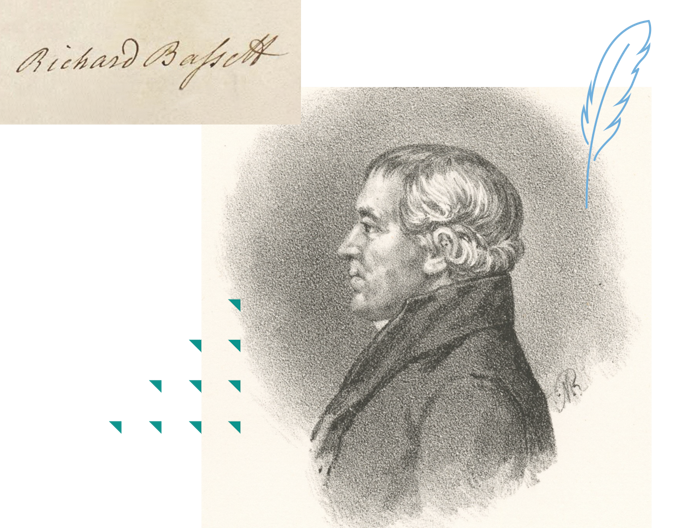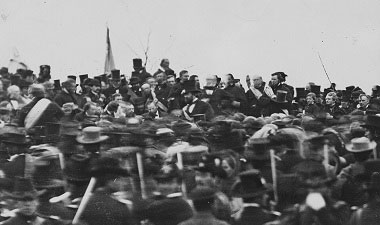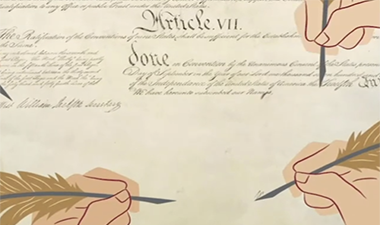Summary
Richard Bassett did not participate in the Constitutional convention debates but helped produce a unanimous vote in Delaware to adopt the Constitution.
Richard Bassett | Signer of the Constitution
2:16
Biography
Richard Bassett was born in Maryland, the son of a tavern-keeper who deserted the family when Richard was a child. He was raised by a relative, Peter Lawson, who bequeathed his estate to Bassett. He read law in Philadelphia and received his license to practice in Dover, Delaware in 1770. He proved successful both as a lawyer and a planter and eventually not only owned the Lawson estate, but also homes in Dover and Wilmington.
Bassett was a strong supporter of independence, and during the Revolution he served as a captain of a troop of Dover cavalry militia. He was a delegate to Delaware’s constitutional convention and held a seat in both the upper and lower houses of the new state government. He also represented Delaware at the 1786 Annapolis Convention, a precursor to the Constitutional Convention.
When the Convention was called in Philadelphia, Bassett was one of the four delegates from his state. Although he was diligent in his attendance, Bassett did not participate in the convention debates. He gave no speeches and did not serve on any committees. He cast no important votes. Instead, like a surprising number of his colleagues, he stood back and let others lead the way in determining the shape of the government that would replace the Confederation. William Pierce considered Bassett, “a man of plain sense” who had the modesty to be silent as others debated the issues.
At the Delaware ratifying convention, Bassett helped produce a 30-0 vote in favor of adopting the Constitution. Once the federal government was established, he followed an ambitious course in national politics. He was elected to the first U.S. Senate and served from 1789 to 1793. During his years in the Senate, he voted for expanding Presidential power to remove government officials, but voted against Hamilton’s proposal for the federal government to assume state debts. Despite his opposition to this element of Hamilton’s financial plans, Bassett was a loyal Federalist who supported John Adams’ bid for the presidency after Washington’s retirement.
In 1799 he returned to Delaware as its governor and held that office until 1801. In that year, the outgoing President Adams attempted to shore up Federalist control of the judicial system by appointing a number of “midnight judges;” Bassett was one of them. When the Jeffersonian Republicans abolished the U.S. Circuit Court on which he sat, Bassett retired from political life.
He spent his remaining years on his estate, Bohemia Manor. Having converted to Methodism in 1789, Bassett freed his slaves and campaigned for the abolition of slavery in his state. In 1815, the 70-year-old Bassett died from a series of strokes.








